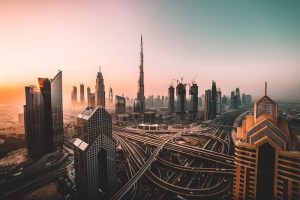Kumar Shyam
The pinch on the pockets of the UAE residents is starting to hurt badly by the day with rising oil prices and its knockon effects.
As soon as the petrol and diesel prices went up by at least 50 fils for the month of July, ride-hailing company Uber has followed suit.
The company sent out an email on Friday to inform about the fare hike. Uber would charge as much as 11 per cent extra for some trips, the American company added.
The hike is Uber’s second this year in the UAE, after a hike in March but the UAE’s market-linked price for the black gold has continued unabated. The country opted for a dynamic pricing with global trends in 2015. But Russia’s attack on Ukraine has messed all economies around the world.
Yet, petrol in UAE is three times more expensive than in Kuwait and almost double the average cost per litre in the six-member Gulf Cooperation Council, according to a Bloomberg report.
Dynamic pricing
Uber is not alone with Sharjah Taxi also deciding to base their fares with the rise or fall of fuel prices with this month.
The Sharjah Roads and Transport Authority (SRTA) said the meter flag down rate will be increased or decreased every month in direct co-relation with the prices. Petrol prices in the UAE have jumped over 56 per cent since January 2022.
_______________
Also read: UAE ranks first regionally and twelfth globally in growth potential
UAE petrol price to get costlier by 50 fils in July 2022
_______________
Early last month, Suhail Al Mazrouei, Minister of Energy and Infrastructure, had admitted that prices could go higher as Chinese demand is likely to recover significantly while efforts by Opec+ to raise production were not yielding results fast enough.
The latest data showed Opec+ was running 2.6 million barrels a day short of its production target, Mr Al Mazrouei said at the Middle East and North Africa-Europe Future Energy Dialogue in Jordan.
He expects China, the world’s biggest importer and second largest economy, which has been easing its coronavirus lockdowns, to “come with more consumption”.
“With the pace of consumption we have, we are nowhere near the peak because China is not back yet,” Mr Al Mazrouei said. “The situation is not very encouraging when it comes to the quantities that we can bring. We’re lagging by almost 2.6 million barrels a day and that’s a lot.”
Dubai most expensive city in the Gulf
Meanwhile, Dubai has been ranked among the world’s most expensive cities to live and work in for expatriates this year, according to the Cost of Living survey by Mercer.
 The study, which looks at how the rising cost of living has impacted workers’ financial wellbeing in 227 cities worldwide, placed Dubai in the 31st position.
The study, which looks at how the rising cost of living has impacted workers’ financial wellbeing in 227 cities worldwide, placed Dubai in the 31st position.
The emirate, which has been seeing a growing influx of millionaires and demand for property recently, emerged as the costliest city in the Gulf Cooperation Council (GCC) region, beating out the neighbouring cities of Riyadh, which landed in the 103rd position, Jeddah (111th place), Manama (117), Muscat (119), Kuwait City (131) and Doha (133).

 Entertainment4 months ago
Entertainment4 months ago
 Entertainment4 months ago
Entertainment4 months ago
 Entertainment4 months ago
Entertainment4 months ago

 The study, which looks at how the rising cost of living has impacted workers’ financial wellbeing in 227 cities worldwide, placed Dubai in the 31st position.
The study, which looks at how the rising cost of living has impacted workers’ financial wellbeing in 227 cities worldwide, placed Dubai in the 31st position.













